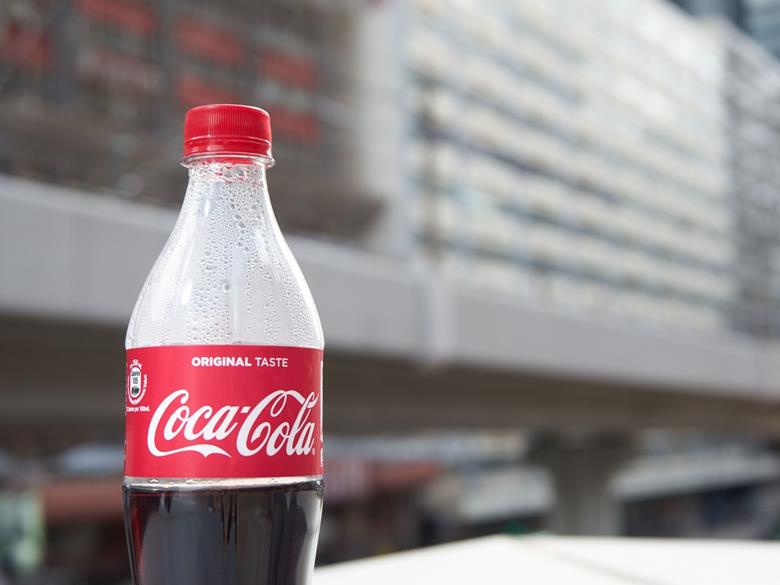
Excluding their caps and labels, all 500ml Coca-Cola Original, Coca-Cola No Sugar, and Coca-Cola Plus bottles sold in the country are now said to be made from 100% rPET. On-pack messages including “I’m a 100% rPET bottle” and “Recycle Me Again” are intended to raise awareness and encourage consumers to dispose of their bottles via plastic recycling streams.
Coca-Cola reports that it has already transitioned into 500ml recycled plastic bottles in Canada, the Philippines, and other countries. Now it hopes to align with upcoming Hong Kongese legislation expected to implement producer responsibility schemes for plastic drink containers, among other products, from 2025.
“In Hong Kong, we have to dispose about 2,300 tonnes of plastic waste every day into our landfills, accounting for about 21 percent of our total municipal waste,” director of environmental protection Samuel Chui explained at Coca-Cola’s launch event.
“Out of this plastic waste, around 4 percent – that is more than a hundred tonnes per day – are plastic beverage bottles, of which over 90 percent are made of PET. Indeed, the PET plastic bottles have a very high recycling value and can be turned into useful resources.
“This new and environmentally friendly packaging will not only contribute to the development of a local circular economy of plastics, but also [act as] an encouraging benchmark for the trade.”
Tim Warwick, vice president of Operations for Hong Kong, Taiwan, Macau and Mongolia at The Coca-Cola Company, continued: “What we’re looking to do now with Coca-Cola is to lead by example, and walk the talk, and then make sure that other beverage players have the pressure they need to move to 100% rPET. And then when we do that, there’ll be such demand that everything will have to be taken out of the environment and go straight into new life plastics (NLP), which will help mostly.
“The best way to do that is to create demand for used bottles by transitioning to 100% rPET.
“This is the latest effort from Coca-Cola Hong Kong, a pioneer in rethinking our beverage packaging to make it more sustainable. To support The Coca-Cola Company’s World Without Waste strategy, we have been taking a bold, innovative approach to sustainability and are now doubling down on our rPET packaging effort to help drive our sustainability agenda forward.”
He added that the transition aligned with Coca-Cola’s target of collecting and recycling every bottle and can it produces by 2030.
The move also comes alongside Coca-Cola’s work with its bottling partner, Swire Coca-Cola, and the Drink Without Waste initiative to develop a new neighbourhood collection scheme. It has made a HK$3 million investment – equivalent to €356,343.20 – to encourage participating housing estates, cleaners, and resident households to ‘build a recycling habit and mechanism’ by separating and recycling their plastic bottles.
Connie Yeung, director and general manager of Swire Coca-Cola Hong Kong, commented: “As one of the largest Coca-Cola bottlers in the world, we continue to leverage our expertise and develop new manufacturing technologies to offer consumers even more environmentally friendly beverage packaging choices that promote a circular economy.
“Used PET bottles can be given a new life – again and again – if returned and recycled properly. We encourage our consumers to become aware of their recycling habits – and to change them if necessary – thus partnering with us in helping to build a World Without Waste.”
“We continue to engage proactively to help drive collective action, working with all key stakeholders to invest in recycling innovation, facilities, organizations and initiatives,” added Hunter Jin, chief executive officer of Swire Coca-Cola SEAHKT Operations.
“One prime example is the significant investment we have been making in New Life Plastics, Hong Kong’s first food-grade-ready plastic recycling facility. It will have sufficient capacity to recycle each PET bottle we sell by 2030 as part of our World Without Waste ambitions.”
Last year, Coca-Cola HBC opened an in-house production facility in Romania; the move sought to supply rPET for its 100% recycled bottle portfolio and contribute to the company’s goal of utilizing almost 50% PET across its EU and Swiss markets by the end of 2023.
Additionally, Coca-Cola Europacific Partners sought to examine how CO2 captured from the atmosphere could be upcycled into ethylene for plastic bottle production and funded research carried out by researchers at Swansea University



